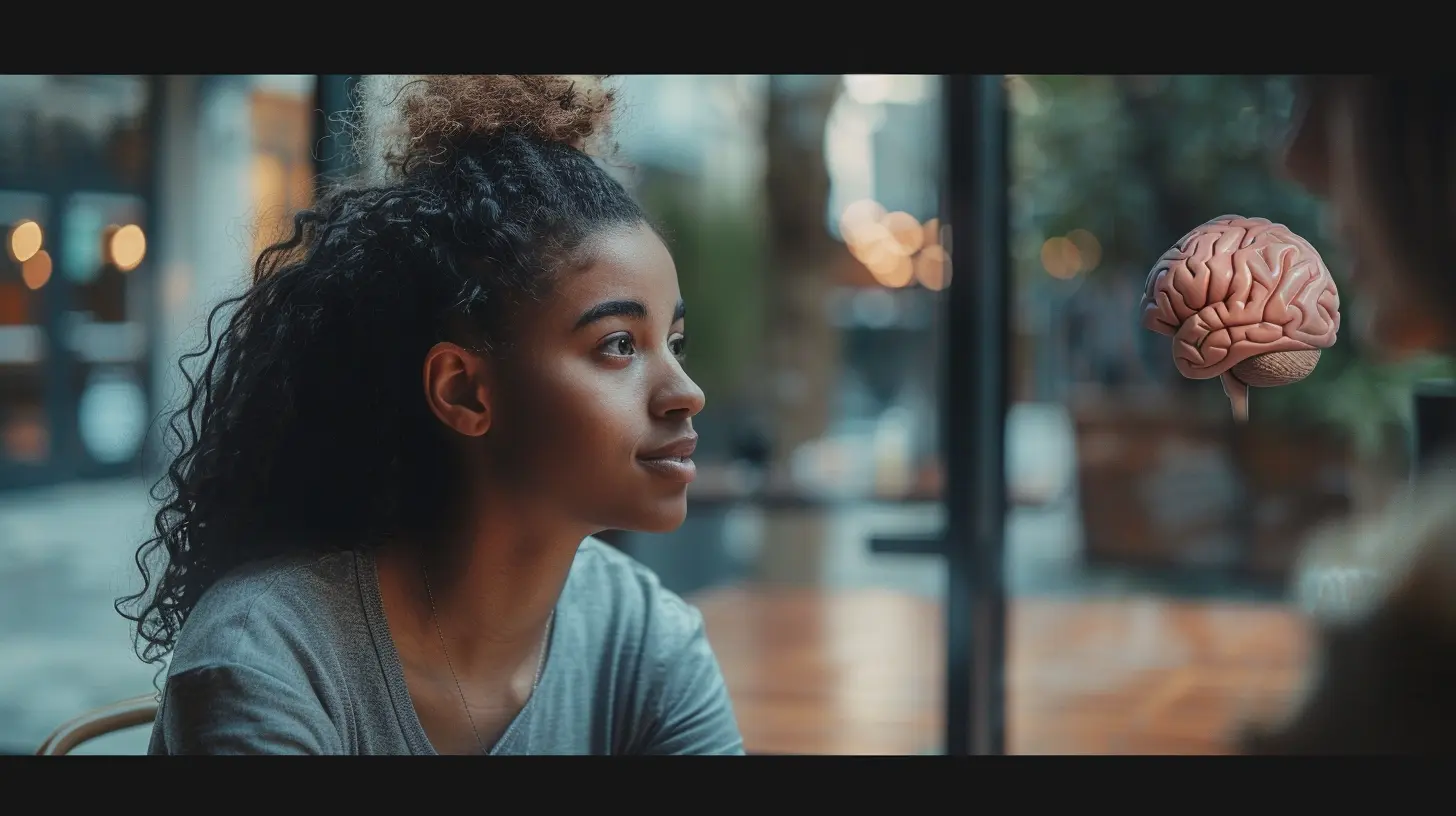The Art of Active Listening: A Key to Providing Emotional Support
1 May 2025
Have you ever shared your deepest thoughts with someone, only to feel like they weren’t really listening? It’s frustrating, right? We all crave to be heard and understood. That’s where active listening comes in—it’s more than just nodding along; it's about truly connecting with someone on an emotional level.
Active listening is a powerful tool that can transform relationships, deepen connections, and provide genuine emotional support. Whether you’re helping a friend through a tough time, strengthening your romantic relationship, or even improving workplace communication, mastering the art of active listening can make all the difference.
In this article, we’ll dive into what active listening is, why it’s so important, and how you can become a better listener to provide meaningful emotional support. 
What Is Active Listening?
Active listening goes beyond just hearing words—it’s about fully engaging with the speaker, understanding their emotions, and responding in a way that makes them feel heard and valued. It requires focus, empathy, and intention.Think of active listening like a dance—you’re not just standing there; you’re moving with the rhythm of the conversation, responding with intention, and ensuring the other person knows you’re with them every step of the way.
The Difference Between Hearing and Listening
- Hearing is passive. It’s what happens when sound waves hit your eardrum.- Listening is active. It involves understanding, processing, and responding thoughtfully.
Too often, conversations feel like a game of verbal ping-pong—each person just waiting for their turn to speak. Truly listening means setting aside your own thoughts to focus entirely on the other person. 
Why Active Listening Matters for Emotional Support
Imagine pouring your heart out to someone, only to be met with distracted nods and generic "uh-huhs." Would you feel supported? Not likely.Active listening reassures people that their feelings are valid and important. Here’s why it’s so essential:
1. Builds Deeper Connections
When you genuinely listen, you show people they matter. This strengthens relationships—whether with friends, family, or colleagues.2. Helps Others Feel Understood
Validation is a basic human need. When someone listens without judgment, it can be incredibly healing.3. Encourages Emotional Expression
When people feel safe and heard, they’re more likely to open up and share their true emotions.4. Reduces Misunderstandings
Many conflicts stem from miscommunication. Active listening clarifies intent and prevents unnecessary tension.5. Promotes Emotional Healing
Sometimes, being heard is all someone needs to start healing from pain or stress.
The Core Elements of Active Listening
Becoming a great listener isn’t about nodding your head robotically or repeating what the person just said. It’s about presence, empathy, and responsiveness. Here’s what makes for truly active listening:1. Give Your Full Attention
Put away distractions—yes, that means the phone. Make eye contact, face the person, and focus entirely on them.💡 Think of this as giving someone a mental hug—you’re embracing their thoughts with your undivided attention.
2. Show That You’re Listening
Use verbal and non-verbal cues:- Nod occasionally
- Say "I see" or "That makes sense"
- Maintain eye contact
- Lean in slightly to show engagement
Small gestures can make a big difference in showing someone you’re genuinely present.
3. Reflect and Summarize
Paraphrasing what someone said reassures them that you’re listening.- Example:
- Speaker: "I’ve just been feeling really overwhelmed with work lately."
- You: "It sounds like work has been really stressful for you."
This simple technique helps the speaker feel validated and encourages them to share more.
4. Ask Thoughtful Questions
Instead of jumping in with solutions, ask open-ended questions that encourage deeper discussion.- "How has that made you feel?"
- "What’s been the hardest part for you?"
- "What do you need right now?"
This shows genuine interest and helps the person express themselves more fully.
5. Validate Their Emotions
Sometimes, people just need to hear that their feelings are valid. Instead of dismissing their emotions, acknowledge them.❌ What NOT to say:
- "It’s not that bad."
- "You’re overreacting."
✅ What TO say:
- "That sounds really tough."
- "I can see why you’d feel that way."
A little validation goes a long way in making someone feel emotionally supported.
6. Avoid Interrupting or Giving Unsolicited Advice
When someone is sharing their pain, they’re not necessarily looking for solutions—they just want to be heard. Unless they ask for advice, resist the urge to jump in with a fix.🚫 Instead of: "Here’s what you should do..."
✅ Try: "That sounds really hard. I’m here for you."
Sometimes, silence and a listening ear are far more powerful than a well-intended solution.
7. Respond With Empathy
Put yourself in their shoes before responding. Imagine how they must be feeling, and respond with compassion.Empathy isn’t about fixing problems—it’s about being emotionally present. 
Common Barriers to Active Listening (And How to Overcome Them)
Even with the best intentions, we all struggle with listening sometimes. Here are some common listening barriers and how to overcome them:1. Distractions (Phones, TV, Mental To-Do Lists)
👉 Solution: Make a habit of putting devices away and consciously focusing during conversations.2. Focusing on What You’ll Say Next
👉 Solution: Remind yourself that it's not about crafting the perfect response—it’s about being present.3. Judging or Jumping to Conclusions
👉 Solution: Keep an open mind and listen without assuming or making snap judgments.4. Trying to "Fix" Everything
👉 Solution: Accept that not every problem needs a solution—sometimes, people just need to be heard.How to Practice Active Listening in Daily Life
Want to strengthen your listening skills? Try these simple exercises:1. The 5-Second Rule
Before responding in a conversation, wait for five seconds after the other person finishes speaking. This ensures you’re fully absorbing what they said instead of rushing to reply.2. Mirror the Speaker's Emotion
If they’re excited, match their enthusiasm. If they’re sad, respond with calmness and understanding.3. Engage in "Silent Listening"
Challenge yourself to simply listen without offering advice, opinions, or solutions.4. Check In With People More Often
A simple "How are you really doing?" can open the door for deeper conversations.Final Thoughts
Active listening isn’t just a skill—it’s a gift you can offer to those around you. In a world where so many people feel unheard, being a compassionate listener can create profound emotional connections.The next time someone confides in you, resist the urge to jump in with solutions or distractions. Instead, be fully present. Listen with your heart, not just your ears. It’s one of the most powerful ways to provide emotional support and deepen your relationships.
So, are you ready to start being a better listener? Your loved ones will thank you for it.
all images in this post were generated using AI tools
Category:
Emotional SupportAuthor:

Jenna Richardson
Discussion
rate this article
3 comments
Vesperos McMahon
Active listening is a powerful tool that fosters deeper connections and understanding. By truly engaging with others, we create a safe space for vulnerability and healing. Let's embrace this art and enhance our relationships, one heartfelt conversation at a time!
May 11, 2025 at 3:12 AM

Jenna Richardson
Thank you for your insightful comment! I completely agree—active listening truly transforms our connections and nurtures understanding.
Patience Mahoney
Active listening truly fosters deeper connections and enhances emotional understanding.
May 5, 2025 at 3:57 PM

Jenna Richardson
Absolutely! Active listening is essential for building trust and empathy in relationships. Thank you for your insightful comment!
Anastasia Becker
This article highlights the vital role of active listening in emotional support, emphasizing its transformative power in relationships. A valuable reminder for anyone seeking to connect more deeply.
May 4, 2025 at 4:56 PM

Jenna Richardson
Thank you for your insightful comment! I'm glad you found the piece meaningful. Active listening truly is a powerful tool for deeper connections.



